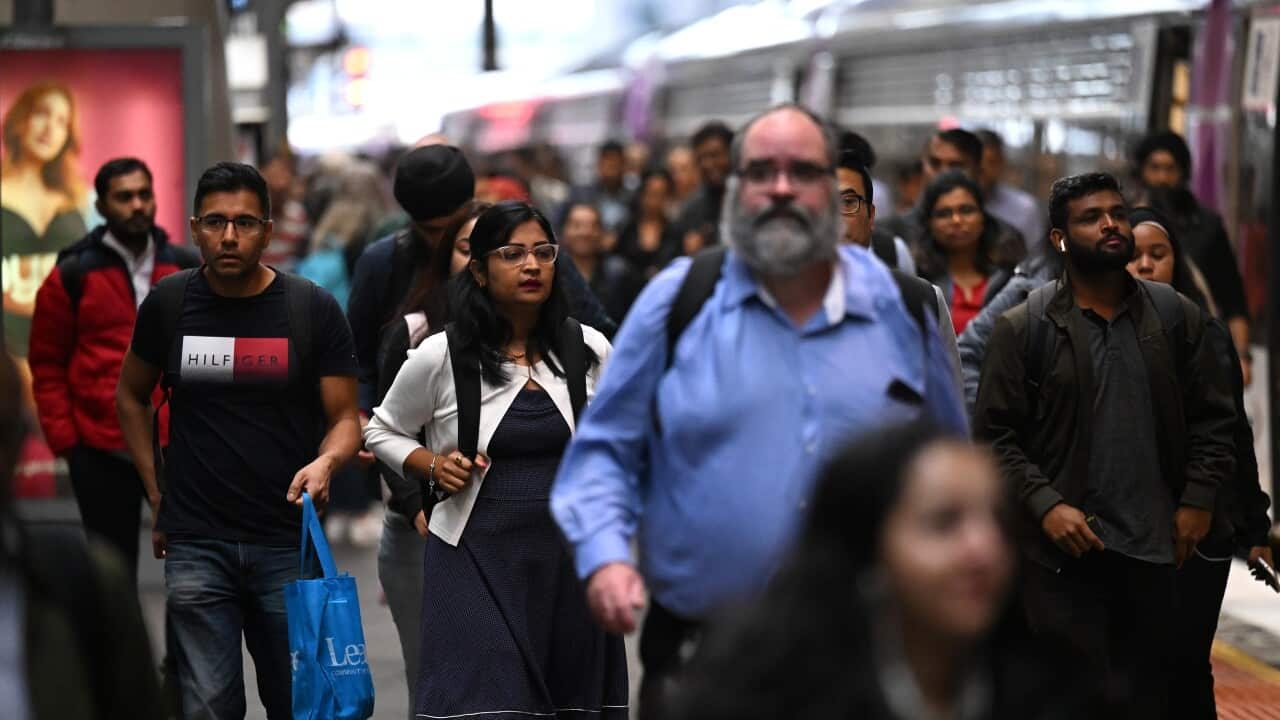Mia Day and Evee Flores are struggling to find reasons to celebrate this Christmas.
Days ago, the pair received a notice of termination for their periodic lease agreement, requiring them to vacate their Perth rental property by 21 February.
"That was already one of my worst days," Day told SBS News.
"That morning, I got a call from the hospital saying there was nothing more they could do for my dad … and that he likely has only days to weeks to live."
Western Australia, NSW, and the Northern Territory are the only jurisdictions where landlords can evict tenants without providing a reason during periodic agreements — leases with a start date but no fixed end date.
The WA government introduced reforms to the state's tenancy laws earlier this year, including banning rent bidding, limiting rent increases to once per year, and allowing tenants to have pets.
However, it stopped short of strengthening protections for those at risk of being evicted without reason.
A government spokesperson told SBS News it's essential to "provide certainty for investors" in WA's long-term rental market.
Couple already struggling to make ends meet
Day, 21, lives with Ehlers-Danlos Syndrome, a rare genetic condition affecting connective tissues.
The disorder leaves her prone to joint dislocations and other complications, making work opportunities scarce.
"If I stand for more than five minutes, I risk dislocating my hips," she said.
Her partner, Evee Flores, has taken on the role of her support carer, a responsibility that restricts the couple's ability to earn more.

Evee Flores and Mia Day spoke to SBS News in November about the rental crisis. Source: SBS News / Christopher Tan
However, earning more could jeopardise Day's Centrelink payments, as Flores' income is factored into their support eligibility, they said.
The pair pay $750 per week in rent, shared with a housemate, leaving little room for savings.
"I wasn't able to pay rent last week, and had to pay the remainder of it this week ... so we're going over budget by a lot," Flores said.
Finding new housing presents another challenge — accessible accommodations that meet Day's needs are rare, and their limited budget makes options even scarcer.
Where to next?
Advocates for housing reform argue that no-grounds evictions perpetuate instability for vulnerable renters, while the WA government continues to defend its approach.
"The rental market is hot right across Australia, including in Perth, which has experienced some of the country's biggest rent increases in recent years," Everybody's Home spokesperson Maiy Azize said.
"Getting evicted from your home and hunting for another is stressful and hard enough for anyone — but it's often tougher for certain cohorts, including people with a disability and those receiving Centrelink payments or working precarious casual shifts."

Eviction and finding a new home is challenging for anyone, but even harder for people with disability, those on Centrelink, or those in unstable casual jobs. Source: SBS News / Christopher Tan
In capital cities, people on the age pension or disability support pension would have as little as $8 a day left after paying rent, according to the report.
60 days left: the clock is ticking
As they scroll through rental listings and send out applications, Day and Flores are contemplating worst-case scenarios.
"Couch-surfing … I think we've got a friend we could go to for two weeks," Day said.
"But I'm scared to hope for something good to happen. We don't really know what we're going to do."
Flores said she isn't new to the instability of housing insecurity.
"I've couch-surfed a lot and moved rentals often," she said.
"It feels awful ... it feels kind of heartless. They see owning a house to rent out to people as a business... and we probably don't fit in their business model."

Mia Day, 21, struggles to find permanent work due to her disability. Source: SBS News / Christopher Tan
Poverty in Australia's 'wealthiest state'
On Monday, WA Treasurer Rita Saffioti unveiled the state's mid-year economic review, announcing a $3.1 billion budget surplus for 2024/25.
While calling housing the government's "biggest priority," Saffioti denied accusations of saving major spending initiatives for the election campaign, with voters set to head to the polls on 8 March.
In a statement to SBS News in response to Mia and Evee's story, a WA government spokesperson said the government remains "acutely aware" of the housing and rental pressures facing many Western Australians.
"Our Government has been working on a range of initiatives to increase the supply of long-term rentals," it said.
"Our Rent Relief Program has also been helping Western Australians at risk of eviction and experiencing rental stress help stay in their rental properties ... and has so far delivered more than $7.9 million in support to 1,882 renters and families."

As part of the mid-year review, WA Treasurer Rita Saffioti told reporters on Monday the construction industry is recovering after struggles with worker shortages and supply issues. Source: SBS News / Christopher Tan
"We don't feel like we are living in the wealthiest state in the country," Day said.
"I mean, just a few weeks ago we had to get more shampoo and conditioner. And I was looking at that and going, can we? Are we going to be able to eat next week if I buy shampoo, conditioner and body wash right now?"
SBS News has contacted Flores and Day's real estate company for comment.












